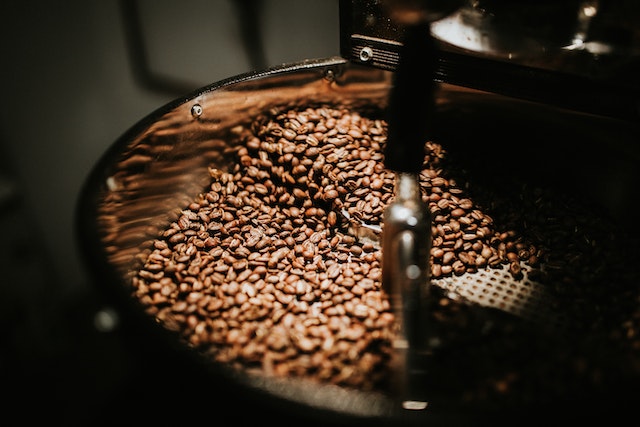 Coffee isn't cheap. Living isn't affordable, either. Millions of businesses feel the heat of rising costs and overheads, including coffee pricing. But why is coffee so expensive? The most significant factor affecting the price of a cup of joe is how long the journey from the farm to your cup truly is. During the process, here are 5 major reasons that affect the prices of your cup of coffee: #1 Labor-Intensive Product Firstly, coffee is a labor-intensive product. It's no easy feat to brew up your tall mocha latte. From farm to cup, it takes nearly five years to grow, then comes the harvest, shipping, roasting, and packaging. Then, of course, there are costs associated with each of these steps (not to mention the building rent, staff, and insurance bills)—organic or premium quality costs even more, like Free Trade. Coffee farms are massive and require a lot of employees to help out. Once harvest time comes to season, it's all hands on tech to yield by one of these two methods:
The supply chain for coffee lovers is global. It takes thousands, if not millions, of connections to produce a premium coffee. With the costs of labor rising, the cost of wholesale coffee is inevitably soaring as well. The slightest increase in wholesale coffee can cause massive inflation in all coffee products. However, wholesale prices can't go any lower, or the farmers will not be able to afford to farm it any longer. So, hopefully, the cost of coffee will not increase anytime soon. #2 Climate Change & the Environment We love our coffee shop in Omaha, but climate change is real. It’s something we all need to talk about. In fact, climate change is a hot topic anywhere, and there's been a lot of debate about the causes and effects of the weather. But one thing is sure - the changing climate is sending hoisting up coffee costs. Coffee growers are left devastated by the adverse effects of climate change. Multi-generational farmers have shut their doors as they scramble to find new places to grow coffee plants. Coffee plants require specific climate conditions to grow and ripen fruit. This delicate process requires the right environment. Some might think, "higher temperatures make farming easier." But, it's actually the opposite. High temps invite pests and diseases to survive in areas where they normally would not survive. Coffee farmers are spending boatloads more to protect their crops. Additionally, some regions are getting too hot, and plants have begun to die simply from the heat. Haiti is experiencing one of the words environmental factors impacted by ecological change. This small, once coffee-dominating country has suffered many climate-based events that devastated farms, like earthquakes and high water levels. #3 Coffee Trees Grow Slowly You wouldn't take your coffee off the pot before it's done brewing, right? Coffee producers can't rush their plants to grow, either. For a newly-planted coffee tree to produce fruit, it can take up to 3-5 years to grow, depending on the variety of coffee. Unfortunately, as stated above, due to climate change, there are occurrences that happen when a disease or natural disaster wipes out a farmer's crop. So, even when they plant new ones, it takes years to recover from their loss. Simply put, replacing destroyed coffee trees and plants leads to rising coffee costs. #4 Quality Change America, your standards have changed! A "good cup of coffee" is incomparable to the quality that was once acceptable back in the day. As coffee becomes increasingly popular, the demand for quality coffee rises significantly as an activity. With the increase in quality and flavor, the cost of coffee inevitably rose from these shifts. When coffee was more of "sludge in a cup," it was farmed for quantity over quality. As Americans demanded better-tasting coffee, farmers were forced to change how and where they planted beans. As a result, some of the best coffee in the world is grown in particular areas, creating premium coffee beans that can't be reduced unless increased there. #5 Supply and Demand When a new coffee trend hits #CoffeeTok, the demand will seemingly increase overnight. For example, Proffer, aka protein coffee, went viral on TikTok forcing coffee shops to offer and promote protein coffee on their menu for customers who don't want to eat a full meal first thing in the morning. Trends like this create waves in the supply and demand chain. As long as the supply meets the demand, the economic effects of coffee go unnoticed. However, most trends that involve coffee shops result in overpriced coffee and wondering why it's so expensive. It's more expensive to purchase a premium quality coffee than the average bag because it's highly sought-after. Of course, many factors go into premium-grade coffee besides supply and demand, but it also impacts the lux coffee brands. Conclusion To answer your question, why is coffee so expensive? People want their coffee, and they want it to be high quality. To achieve better-tasting coffee, farmers must buy a product and harvest it in particular spots (some of which are impacted by environmental changes). Between climate change and labor, the price of coffee will continue to soar. While it might be hard to justify spending $5-7 on a latte, it's essential to understand that there are so many reasons why coffee is so expensive.
1 Comment
|
Archives
March 2023
Categories
All
|
|
Site powered by Haibua Marketing Group

![Hay Jay Coffee [ OMAHA ]](/uploads/1/3/4/6/134676321/hay-jay-coffee-omaha.png)
 RSS Feed
RSS Feed



